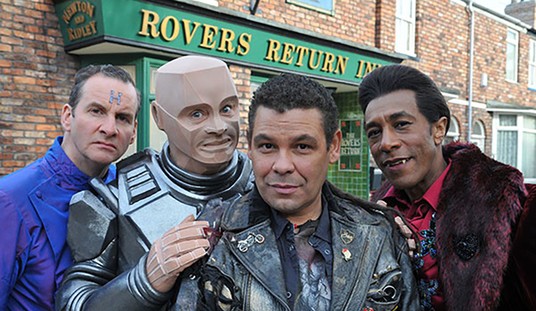In the wake of the Parkland, Fla. school shooting, in which a deranged 19-year-old took the lives of 17 innocent people at a school from which he had recently been expelled — and from a community that had unsuccessfully tried to warn authorities about the shooter’s state of mind — there has been no shortage of outcry from people frustrated that something must change.
One young man, a 17-year-old survivor of the Stoneman Douglas High School shooting named Colton Haab, already lauded as a hero for helping protect students using his ROTC training, is suggesting that what needs to be done looks less like gun control and more like gun training, particularly for teachers.
“Unfortunately, gun control, it’s definitely needed a little bit more,” Haab said Saturday. “I believe if we did bring firearms on campus to teachers that are willing to carry…and they got their correct training for it, I think that would be a big beneficial factor for school safety.”
“If Coach Feis had had his firearm in school that day, I believe that he most likely could’ve stopped the threat.”
ROTC Student: “If Coach Feis had had his firearm in school that day, I believe that he most likely could’ve stopped the threat.”
Feis was the football coach who died shielding students, he was a trained security guard but wasn't allowed to carry a gun to protect students. pic.twitter.com/qrXCk6pj6N
— Ryan Saavedra (@RealSaavedra) February 17, 2018
Haab explained that Feis — the hero teacher who gave his life shielding students from gunfire (who was a trained security guard as well as an assistant coach) — upon hearing gunshots, took his golf cart and headed toward the fray. The question Haab is presenting is what would a man willing to give his life have been able to do had he actually been armed?
It’s a good question and is one Secretary of Education Betsy DeVos is already beginning to consider as she attempts to figure out what the federal role will be in protecting children in schools from the possibility of future tragedy like horror of last Wednesday.
“I think this is an important issue for all states to grapple with and to tackle,” she told conservative radio host Hugh Hewitt. “They clearly have the opportunity and the option to do that, and there are differences in how states approach this.”
“I think this needs to be part of the broader, more robust conversation about how can we avoid these things in the future, and how can we ensure that when my child, your child, goes to school in the morning they’re going to go to a safe and nurturing environment, and they’re going to be able to pursue their learning in a way that is going to excite and energise them.”
Pressed further on whether she personally supported arming teachers if they were stringently vetted and rigorously trained, Ms DeVos she said: “I think that is a question and issue for communities to wrestle with, and I’ve seen approaches in different cities done different ways.
“It is one that has to happen at the local level and at the state level. Communities need to share best practices and results from the steps that they take to ensure that kids have a safe environment in which to learn.”
DeVos is treading the fine line that conservatives favor: keeping the federal government out of community policing as much as possible. Appropriate here because in the case of Parkland, the community, by most accounts, did its job. There were apparently many warnings about the behavior of the shooter, with reports indicating police had been called to his home 39 times since 2011, while the FBI apparently ignored more recent warnings called into their tip line.
https://twitter.com/DianneG/status/964554009762820096
Stoneman Douglas High School had, indeed, banned the boy from returning to campus grounds with a backpack. Failed attempts to make authorities aware of the shooter’s mental state should prompt those who do not favor arming teachers to insist the federal police force step up their game. And those, like Haab, who favor training teachers to protect students from possible future calamity can also use the failure of the FBI to act as justification for their opinions.
In short: the FBI has some work to do.














Join the conversation as a VIP Member